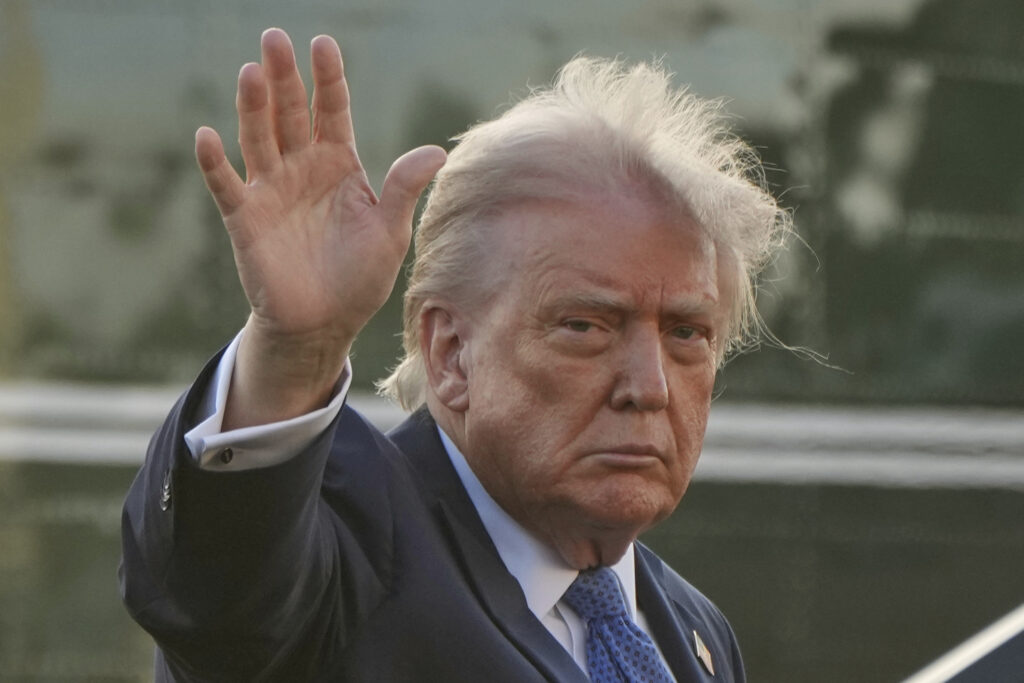
Conservative and liberal judges across the country this week ruled against President Donald Trump in at least 11 different lawsuits challenging his administration’s immigration, elections and anti-diversity, equity and inclusion (DEI) efforts.
The flurry of anti-Trump rulings suggests that, for now at least, the courts are mostly holding firm as a bulwark against the administration’s authoritarian power grab.
Trump’s legal setbacks started Monday, when his administration was hit with yet another lawsuit, this time from Harvard University. Represented by several high-profile conservative lawyers, the university alleged the government violated its First Amendment rights and attempted to “coerce and control” it by withholding over $2 billion in federal research funding.
Tuesday, a judge blocked the Trump administration from gutting Voice of America, saying its attempt to dismantle the 80-year-old government-funded news service likely violates federal law.
That same day, federal judges in Colorado and New York extended their previous orders blocking the Trump administration from removing people in the state using the Alien Enemies Act (AEA), an 18th century wartime law.
The judge overseeing the case of Kilmar Abrego García, the Maryland man the Trump administration erroneously sent to El Salvador, also accused Trump officials of “willful and intentional noncompliance” and ordered them to comply with discovery requests from Abrego García’s lawyers.
The blows to Trump’s immigration crackdown continued into Wednesday when a Maryland judge he appointed in 2018 told the government to return to the U.S. a 20-year-old Venezuelan man that it sent to a notorious prison in El Salvador using the AEA. The judge said his removal violated a court settlement approved in 2019.
Thursday was a particularly bad day for Trump in the courts. That same Maryland judge dealt a major blow to his anti-DEI efforts, too, by instructing the Department of Education not to implement a “Dear Colleague” letter declaring all race-based programming and activities illegal over concerns that it violates the First Amendment. Judges in New Hampshire and D.C., including another Trump appointee, also ruled against the letter that day.
A federal judge in D.C. then issued a scathing ruling against Trump’s sweeping elections executive order and blocked federal agencies from implementing multiple parts of it. In her order, the judge chastised the president for attempting to usurp control over elections from the states and Congress.
Later Thursday, a federal judge in California stopped the Trump administration from withholding funding from cities it deems as “sanctuary” jurisdictions for not complying with its mass deportation efforts, saying that portions of the executive orders that initiated the funding halts were unconstitutional.
A federal judge in D.C. Friday blocked the government from implementing Trump’s executive order that attempted to end collective bargaining rights for federal employees across 37 agencies and departments, as well.
Instead of toning down his behavior in the face of the legal losses and plummeting poll numbers, Trump doubled down this week and embarked on some of the most extreme acts of his second term so far.
The president Thursday ordered the Department of Justice to open an investigation into a crucial Democratic fundraising platform. And the FBI and DOJ arrested a county judge in Wisconsin Friday, alleging that she obstructed an immigration enforcement operation.
Through an executive order, Trump also attempted to weaken the Civil Rights Act of 1964 by preventing government agencies from using a key component of the act to enforce anti-discrimination laws.
